Olympia, Parts I & II (1938)
The daughter of a wealthy Jewish businessman, Leni Riefenstahl had undergone a classical education in both dance and fine art before she made her first film, The Blue Light, under the auspices of her own production company, Leni Riefenstahl Studio-Film. After the rise of the Nazi empire, Hitler, who had always fancied himself an artist and at least knew something about it, took a liking to her work and employed her. One can only surmise she took the job not only because it was in her chosen field, but also to spare her life. [1]
Shooting the 1936 Berlin Olympics must have felt like an overwhelming undertaking. She deployed forty-five cameras in various places around the coloseum and outergrounds of the city, some at earth-level, some underwater, and some even by balloon. All in all, she captured two hundred hours of footage which she then undertook to compile into four hours of screen time, a very copious prospect. Using rhythmic editing and God only knows what fossillzed equipment, she created something enjoyable on the whole, even if some of the games are a bit tedious and boring at times.
The essence of the film delineates the physical form and its versatile strength and appeal. An athlete herself, she doesn't hesitate to emphasize the glory of the naked human body, male or female. She takes us back to the ancient ruins of the Olympics' origins to open part I and compares a team of strutting, eager men in part II to wild animals.
Her lean but effective use of spectator shots makes for greatly understated social commentary on the time. All around Adolf Hitler, who presides over the proceedings in full military uniform, sit the champions of other races and their various color-coordinated peanut galleries. African Americans, Asians, and even those of the inferior race incognito represent their country without fear of the concentration camps only miles away. Leni practically winks at the world with the camera. While she does not deny the purpose of the film nor its focus on physical beauty and precision, she tells a tale about her Kaiser. At one point, a female German runner drops the baton in the middle of the 1600 meter relay, costing her team its first place position. Hitler immediately slaps his hands on his knees, moves as if to stand up, and then speaks with the man on his left. You can almost hear him say, "Find the woman's home address and send her and her family to Auschwitz. She has disgraced Deutschland...no, wait. Just have them all killed."
[1] I am by no means a historian. For a full understanding of her plight, might I suggest reading Leni Riefenstahl: A Memoir, published in 1993.
Shooting the 1936 Berlin Olympics must have felt like an overwhelming undertaking. She deployed forty-five cameras in various places around the coloseum and outergrounds of the city, some at earth-level, some underwater, and some even by balloon. All in all, she captured two hundred hours of footage which she then undertook to compile into four hours of screen time, a very copious prospect. Using rhythmic editing and God only knows what fossillzed equipment, she created something enjoyable on the whole, even if some of the games are a bit tedious and boring at times.
The essence of the film delineates the physical form and its versatile strength and appeal. An athlete herself, she doesn't hesitate to emphasize the glory of the naked human body, male or female. She takes us back to the ancient ruins of the Olympics' origins to open part I and compares a team of strutting, eager men in part II to wild animals.
Her lean but effective use of spectator shots makes for greatly understated social commentary on the time. All around Adolf Hitler, who presides over the proceedings in full military uniform, sit the champions of other races and their various color-coordinated peanut galleries. African Americans, Asians, and even those of the inferior race incognito represent their country without fear of the concentration camps only miles away. Leni practically winks at the world with the camera. While she does not deny the purpose of the film nor its focus on physical beauty and precision, she tells a tale about her Kaiser. At one point, a female German runner drops the baton in the middle of the 1600 meter relay, costing her team its first place position. Hitler immediately slaps his hands on his knees, moves as if to stand up, and then speaks with the man on his left. You can almost hear him say, "Find the woman's home address and send her and her family to Auschwitz. She has disgraced Deutschland...no, wait. Just have them all killed."
[1] I am by no means a historian. For a full understanding of her plight, might I suggest reading Leni Riefenstahl: A Memoir, published in 1993.
Labels: Film, Reviews, Riefenstahl

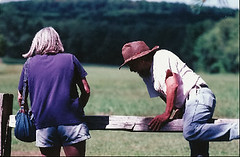
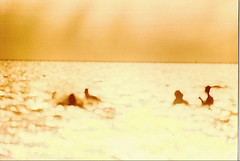
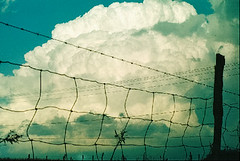
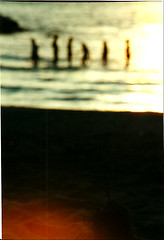
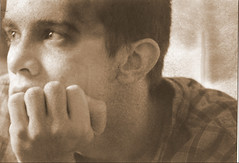
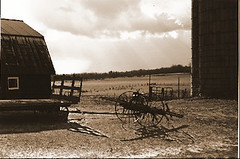
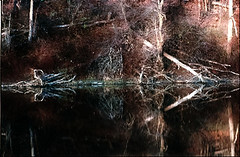






0 Comments:
Post a Comment
<< Home